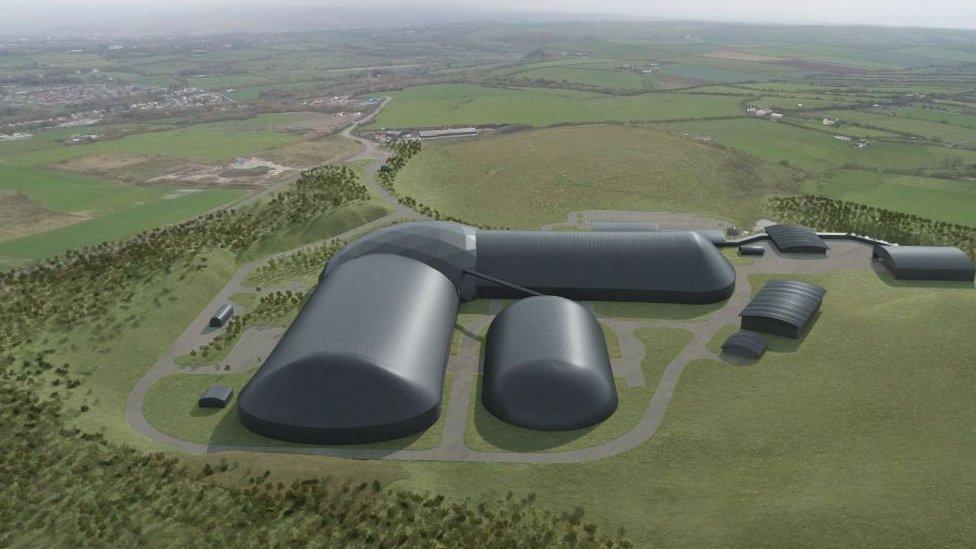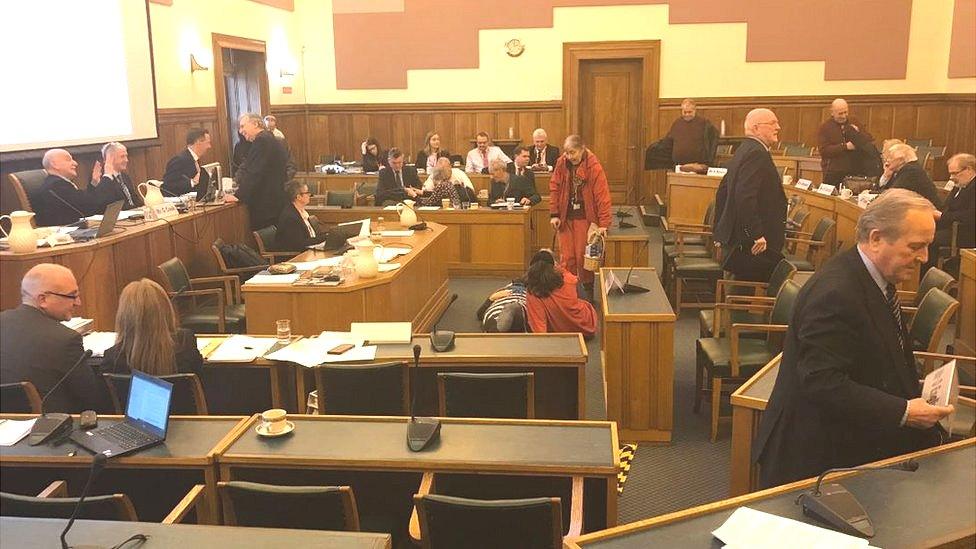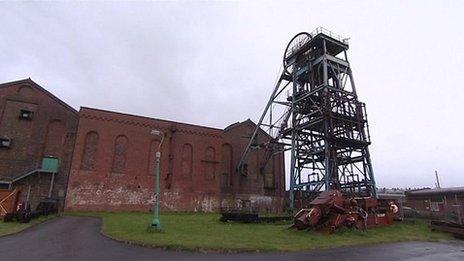Woodhouse Colliery: First UK deep coal mine in decades to go ahead
- Published

Woodhouse Colliery would be the first new deep mine colliery for three decades
Plans for the UK's first deep coal mine in decades will go ahead after the government decided not to intervene.
West Cumbria Mining said the new mine - near the site of the former Haig Colliery in Whitehaven which shut in 1986 - would create 500 jobs.
Cumbria county councillors gave it the go-ahead in March, but this sparked a number of objections, including a call for government scrutiny.
However, ministers have now said the council should take the decision.
Councillors have ratified their support for the plans.
The Woodhouse Colliery would extract coking coal from the seabed off St Bees, with a processing plant on the former Marchon site at Kells.
'Kick in the teeth'
However, the plans have sparked controversy, with objectors - some of whom staged a sit-in on the floor of the council chamber - saying it would contribute to global warming.
Tim Farron, the Liberal Democrat MP for Westmorland and Lonsdale, who asked for the "call-in" described the news as "a kick in the teeth in the fight to tackle climate change".
He said: "Cumbria has so many renewable resources to provide energy - water, wind and solar - and we should most definitely not be taking the backwards step of opening a new coal mine."

Some objectors staged a sit down protest in the council chambers at a meeting earlier this year
But Trudy Harrison, Conservative MP for Copeland welcomed what she described as "fantastic news".
She said: "It is vital that this development goes ahead and I am pleased that common sense has prevailed.
"Coking coal is essential for the steel industry and this has been rightly recognised."
The last deep coal mine in the UK, Kellingley Colliery in North Yorkshire, closed in 2016.
West Cumbria Mining said on its website: "A study in America showed a coal mine with 300 employees indirectly creates at least twice as many jobs in the region, as employees have more disposable income than previously, which impacts on local spending with retail, leisure, construction etc.
"As with any change to a local area, there may be decisions that might not suit every individual, but it is our intention to develop a mine which brings significant benefits that the whole community can enjoy for many years to come."
It is hoped work could begin on the site in early 2020, with coal production starting about two years later.
- Published19 March 2019

- Published10 June 2014
